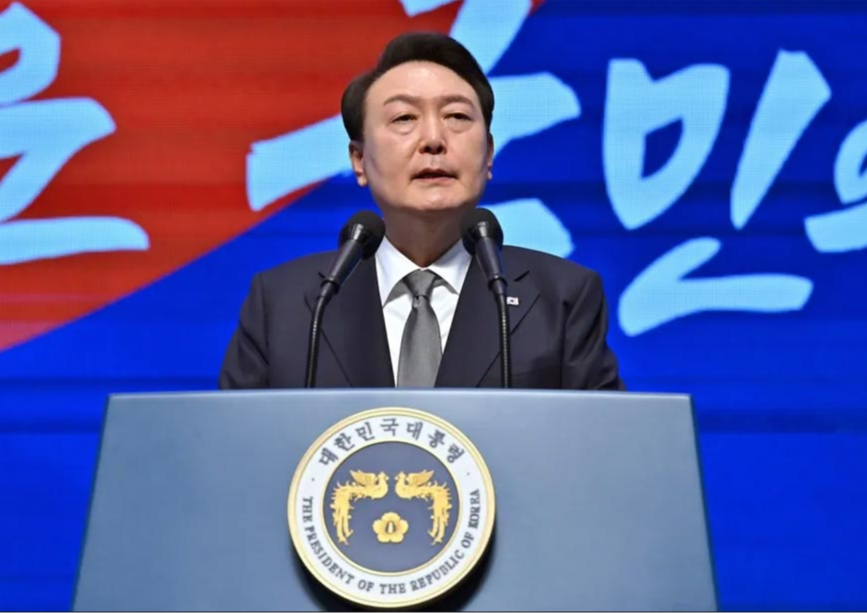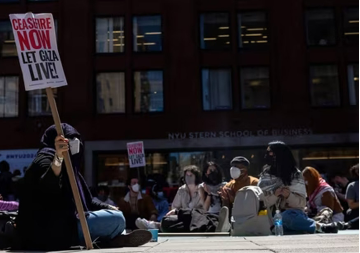
The result of the South Korean parliamentary elections has surprised most political watchers. Swimming against the trend, the Opposition has won hands down against the current President’s Party, further increasing the divide between the ruling party and the opposition. This means that there would be a continued political logjam in the National Assembly. The results clearly highlight the voters' dissent against the current president and his policies. As an important stakeholder in the Indo-Pacific, it is important to understand the election's impact on South Korea’s domestic political dynamics and its foreign policy.
A re(new)ed political landscape
South Korea's general elections concluded with the Opposition winning by a wider margin, retaining its majority in the National Assembly. In the 300-member National Assembly, the opposition led by the Democratic Party of Korea (DPK) won 175 seats, including the proportional seats against the People’s Power Party (PPP) which secured 108 seats. On directly contested seats between DPK and PPP, the former won 161 out of 254 seats. The DPK won almost all of the seats in the capital region which includes almost half of the assembly seats. The 2024 election also registered 67 percent voter participation—the highest in 32 years.
RKP captured around 24 percent of support lowest among his adversaries like the People Future Party and the Democratic United Party, both sister parties of the main opposition parties.
Besides the main opposition party DPK, some small parties like the Rebuilding Korea Party (RKP) led by the former Justice Minister Cho Kuk have also made their political debut in the National Assembly election. The Party secured 12 proportional seats in the national assembly, making it a key player in South Korean politics. RKP captured around 24 percent of support lowest among his adversaries like the People Future Party and the Democratic United Party, both sister parties of the main opposition parties. Similarly, the New Reform Party (NRP) led by the former PPP head Lee Jun-seok has also won two seats.
After the ruling party’s defeat, many senior ministers including Prime Minister Han Duck-soo and PPP head, Han Dong-hoon, tendered their resignation to the President, taking responsibility for the poor performance.
Prolonged legislative deadlock
Following the conservative party’s defeat, it is expected that the President will tone down his aggressive stance on domestic issues such as recent doctors’ protests and will become more sensitive towards the concerns expressed by the electorates on issues related to inflation, livelihood costs, and employment. Particularly towards the young male voters in their 20s and 30s, who are among the party's core constituencies. After his party’s defeat, the President acknowledged his failures and promised to address voters' issues. “I will humbly accept the will of the people expressed in the general election, and will strive to reform the administration and do my best to stabilize the economy and enhance people’s livelihoods”, he said. Echoing the public sentiment, even the conservative news outlet, The Chosun agreed that the election results were a rebuke of the President’s ‘administration’ and his party’s ‘perceived arrogance and ineffectiveness.’
Now that the President’s party again does not have a majority in the National Assembly, he is expected to work with the Opposition to pass pending bills and even legislate on important ones. Going forward, the President will have a weaker position which will certainly curtail his stature within the party, as the party failed to deliver more seats under his leadership. Besides, the inability to fulfil his previous electoral commitments will also mire the rest of his political tenure.
The President will have a weaker position which will certainly curtail his stature within the party, as the party failed to deliver more seats under his leadership.
On the political front, the Opposition after its win will likely push for investigations on allegations related to the First Lady and the appointment of the former defence minister, Lee Jong-sup. The DPK and Cho Kuk’s party are expected to come together to push for a fair and open investigation which was earlier vetoed by the President. This will further make things difficult for the President as public opinion is already not in his favour due to recent controversies. Similarly, on the economic front, many liberal policies announced in the run-up to the elections will have to be reevaluated after the results, this would mean that the government’s plan to push for easing tax regime, regulations, and incentives for corporations will face strong opposition from the left parties in the assembly. Conversely, the Left parties will support legislation aimed at ‘heavier inheritance and gift taxes’, pension reforms, and labour-friendly laws aimed at further consolidating political support.
Decelerating the diplomatic engagement?
But what does the current election result mean for South Korean Foreign Policy? Since assuming his position, President Yoon Suk-yeol has used his political office and powers to realign South Korea’s foreign policy with the United States (US). Simultaneously, he has also changed the country’s foreign policy from strategic ambiguity to strategic clarity when it comes to the US-China rivalry in the Indo-Pacific. Seoul’s changed policy can be observed through its position on issues including the South China Sea, Taiwan Strait, and North Korea.
To align closer with the US, President Yoon’s administration also released South Korea’s Indo-Pacific strategy and pushed for improving relations with Japan, irrespective of resistance from the Opposition. Additionally, he rejected his predecessor’s foreign policy posture on North Korea and adopted a hawkish approach, while sidelining China in the process. In his tenure, relations with Russia have also deteriorated substantially due to the Ukraine conflict and Russia’s support for North Korea. Conversely, South Korean relations have strengthened with other countries like the United Kingdom (UK), Poland, Vietnam, Australia, the United Arab Emirates (UAE), and Saudi Arabia.
Relations with Russia have also deteriorated substantially due to the Ukraine conflict and Russia’s support for North Korea.
However, going forward, the President will face a dilemma between carefully managing domestic politics and foreign policy. Although the elections directly do not influence the President’s Foreign policy approach, it would certainly curtail his capacity to invest more in international relations and foreign policy, an important highlight of his two-year presidential tenure. Even if he wishes to continue his extensive diplomatic engagement, it would come at a cost—he will have to cut down on his domestic investment, which would be very difficult, particularly after his party has just lost elections and is more interested in gaining back the confidence of the electorate. So, it is likely that the President will focus more on dealing with domestic issues like the economic agenda for some time and will follow that by slowly increasing his diplomatic engagement.
After gaining some foothold, the Opposition will try to influence foreign policy as it did before in the case of China, Japan, the US, and North Korea, but with limited success. Thus, we will see more rhetoric and obstruction by the DPK, criticising the government's diplomatic engagement. But how much of that will impact the public is a huge question mark, as foreign policy is not a poll issue. Nonetheless, Seoul’s diplomatic relations will continue to be under more opposition scrutiny. There will be an attempt to put pressure on the government on some ties like Japan and North Korea, as there is a domestic constituency for that. However, altering the stance on China and the United States will be difficult. With respect to strengthening relations with like-minded countries in the Indo-Pacific, like India, Australia and ASEAN members, there will be continuity.
After gaining some foothold, the Opposition will try to influence foreign policy as it did before in the case of China, Japan, the US, and North Korea, but with limited success.
Way forward
The election results have placed the President in a difficult situation after his party’s defeat. It is expected that the election results will force the President to focus more on domestic challenges like economic issues, diverting his attention from the foreign policy agenda. With the Opposition’s role becoming stronger, the President will be held to account more inside and outside the national assembly for his promises. Additionally, there is an increasing possibility of foreign policy becoming a political instrument in the hands of the Opposition. Therefore, political deadlock is expected to continue over domestic political issues. Due to this, the President will be invested more in rebuilding and consolidating his political capital and reputation domestically as opposed to spending much time on diplomacy.
Abhishek Sharma is a Research Assistant with the Strategic Studies Programme at the Observer Research Foundation
The views expressed above belong to the author(s). ORF research and analyses now available on Telegram! Click here to access our curated content — blogs, longforms and interviews.




 PREV
PREV


